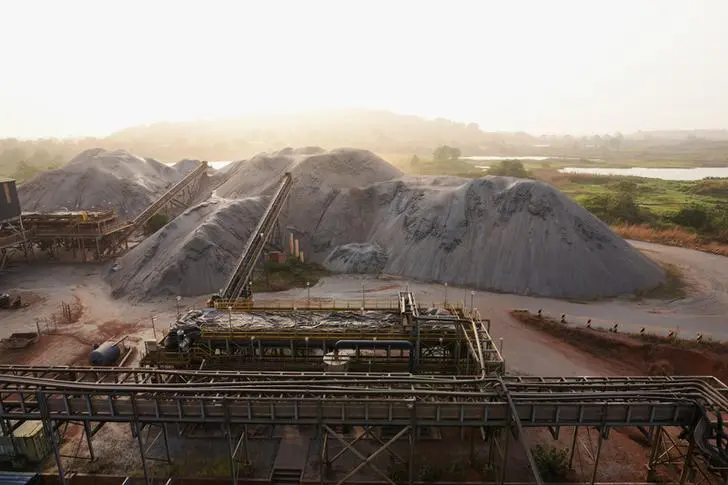PHOTO
CONAKRY- Guinea's ruling junta has ordered the cessation of all activities at the massive Simandou iron ore deposit owned by Rio Tinto and a Chinese-backed consortium, saying it was seeking clarification of how Guinea's interests will be preserved.
Simandou, in Guinea's remote south-eastern corner, is the largest known deposit of its kind, holding more than 2 billion tonnes of high-grade ore, but its development has been stalled by protracted legal disputes and the cost of infrastructure.
In a statement read on national television late on Thursday, Guinea's interim government said interim president Mamady Doumbouya, who took power in a military coup in September, had not seen any progress towards developing the project.
"He therefore ordered the cessation of all activity on the ground pending the answers to questions posed to various actors and the clarification of the operational mode by which the interests of Guinea will be preserved," government spokesperson Ousmane Gaoual Diallo said.
The companies involved in the project - Rio Tinto , Winning Consortium Simandou (WCS) and Chinalco did not immediately respond to requests for comment on the junta's order.
Mining and exploration firms in Guinea had said after the September coup that their activities were unaffected and that the new leaders had taken a positive tone on mining.
The junta said shortly after seizing power it would "respect all its obligations related to mining agreements".
Analysts at CRU Group estimate Simandou as a whole could produce 150 million tonnes of iron ore per year, propelling the country into the top five global suppliers of seaborne iron ore.
Simandou is a strategic asset for China as it seeks to develop alternatives to Australian iron ore in response to a trade war between Beijing and Canberra. High-grade iron ore is prized worldwide as it reduces steelmaking costs and emissions because it results in less waste and energy use.
THE 'TRANSGUINEAN' QUESTION
Rio Tinto has held rights to Simandou since 1997. It owns a 45.05% stake in Blocks 3 and 4 of the deposit, with Aluminium Corp of China (Chinalco) holding 39.95% and Guinea's government the remaining 15%.
Chinese-backed consortium SMB-Winning won a government tender in November 2019 for Blocks 1 and 2 of Simandou.
It is developing the mine and associated infrastructure through WCS and has said it aims to get the first iron ore to market by 2025, a timeline which analysts say is ambitious.
A source at Guinea's mines ministry told Reuters on condition of anonymity the government was hoping Rio Tinto and WCS would reach an agreement to work together.
It is unclear whether or how the two companies will collaborate on a 670-kilometre "Transguinean" railway being built to get Simandou ore to market.
Guinea's government has said any developer of the mine must build the railway spanning the country, even though it adds significantly to the cost of developing the mine and the route to port through neighbouring Liberia is much shorter.
Rio Tinto has previously said it would collaborate with those building the infrastructure, and CEO Jakob Stausholm said in October he saw the development as one integrated project.
In an update on the Simandou project released last month in its 2021 financial results statement, Rio said that it continued to engage with stakeholders including the government of Guinea, a new drilling programme has commenced, and construction and early development works were expected to be carried out this year.
A Reuters investigation in August last year found WCS started blasting a railway tunnel in a habitat for critically endangered chimpanzees with no plan in place to manage the impact on the animals.
Rio declined to comment on the construction works at the time, saying its railway solution was under study.
(Reporting by Saliou Samb; Additional reporting by Helen Reid; Writing by Nellie Peyton; Editing by Mark Potter and Barbara Lewis)





















